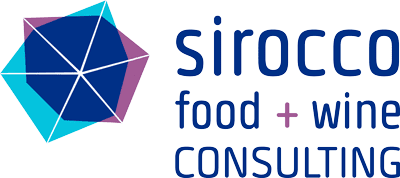Food Safety Plans and Third-Party Certifications
The global food supply chain is changing rapidly to meet new food safety regulatory requirements. In the US, such requirements pertaining to food safety and food fraud were introduced in 2011 when President Obama signed FSMA (Food Safety Modernization Act) into law on January 4, 2011. FSMA has given the Food and Drug Administration new enforcement powers to regulate how food is imported and manufactured.
Foreign companies seeking to export to the United States must meet the same level of food safety protection as food manufactured in the US. To meet FSMA requirements, businesses must develop food safety plans and identify preventive controls targeting known and foreseeable food safety hazards that are likely to cause illness or injury. Hazards may be biological, chemical (including allergens and radiological hazards) or physical. Regulations stipulate that a Preventive Control Qualified Individual or PCQI must oversee the development and implementation of a food safety plan. Details on training to become a PCQI can be found here.
In Canada, the Safe Food for Canadians Act and Regulations (SFCR) came into force on January 15, 2019. Most Canadian companies that manufacture food for sale in Canada must develop a Preventive Control Plan (PCP). Canadian food imports are also subject to PCP regulations as well as food produced in Canada and requiring export certificates. A written Preventive Control Plan (PCP) demonstrates how food safety risks are addressed. It also identifies control measures for recall, customer complaint handling and customer protection (labeling and grade standards). PCP plans must be maintained and revised to reflect changes in product formulation, manufacturing process or regulatory requirements.
Why are Food Safety Plans Important?
A food safety plan is a way for a food manufacturer or food importer to provide written assurances that the food they market is safe to consume and meets food safety laws. In order to develop a food safety plan, specialized knowledge of food science, food technology and good manufacturing practices is required. Having access to food safety expertise is also important because food safety plans follow specific regulatory standards (HACCP, US FDA Preventive Controls, Canadian SFCR). As live documents, the food safety plans demand constant reassessing, updating and training. Small and micro businesses that lack expertise may decide to receive training in food safety management so that they can develop the programs themselves. Others may opt to hire quality assurance staff to oversee this business function.
How to get HACCP/GFSI Certified? Why is it important?
Businesses that are looking to export, co-pack for large companies or sell food to retailers or fast food chains often require food safety certification. HACCP or more advanced certifications such as SQF or BRC (GFSI-benchmarked certification schemes) will be called for depending on customer requirements. Certification is obtained by achieving a passing grade in a third-party audit. Audits take place annually or every 6 months (surveillance audits). During an audit (one, two or more days in duration), a trained or certified auditor reviews a business food safety system to ensure that all standard requirements are met, implemented and documented. At a minimum, a food safety system is HACCP-based and must includes documented operational pre-requisite programs. When an audit is successful, a certificate is issued.
When do I Need to Hire a Food Safety Consultant?
You may need to hire a food safety expert to supplement your existing internal resources and knowledge base. Food safety consultants are able to advise on regulatory compliance and industry standards. They provide guidance on which food safety scheme to implement and what resources, time and budget may be necessary to complete the project. A good consultant will guide, teach and motivate to achieve a positive outcome.
A food safety expert can help you to
- Develop documentation to establish a written food safety program
- Perform a complete and accurate hazard analysis towards completing a food safety plan
- Identify the right preventive controls and develop procedures
- Develop, train and implement a food safety system
- Provide training on HACCP, GMP, SQF or other standards and certification schemes
- Audit a food safety system in preparation for a certification audit
- Help with the audit follow up (submission of corrective actions)
An example of a road map towards SQF certification can be found here. As you can see from the document, this GFSI- benchmarked and accredited scheme requires many elements, including pre-requisite programs, HACCP, regulatory compliance requirements (SFCR or FSMA) and Food Fraud Vulnerability and Mitigation programs.
Operational pre-requisite programs may be implemented using the GFSI Global Market Manufacturing toolkit. For Canadian manufacturers, the CFIA FSEP standard is still a good reference.
Information on implementing HACCP can be found here (Canadian FSEP Program) and at these links: HACCP Principles & Application Guidelines and CAC HACCP standard.
Well known certification bodies that offer HACCP and GFSI training and certification services include: SAI Global, NSF and Eurofins.
Contact Sirocco Food + Wine Consulting to inquire about food safety training and consulting services.





